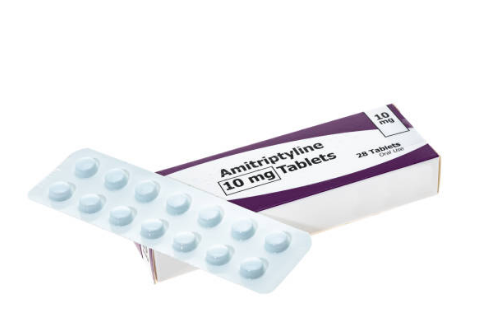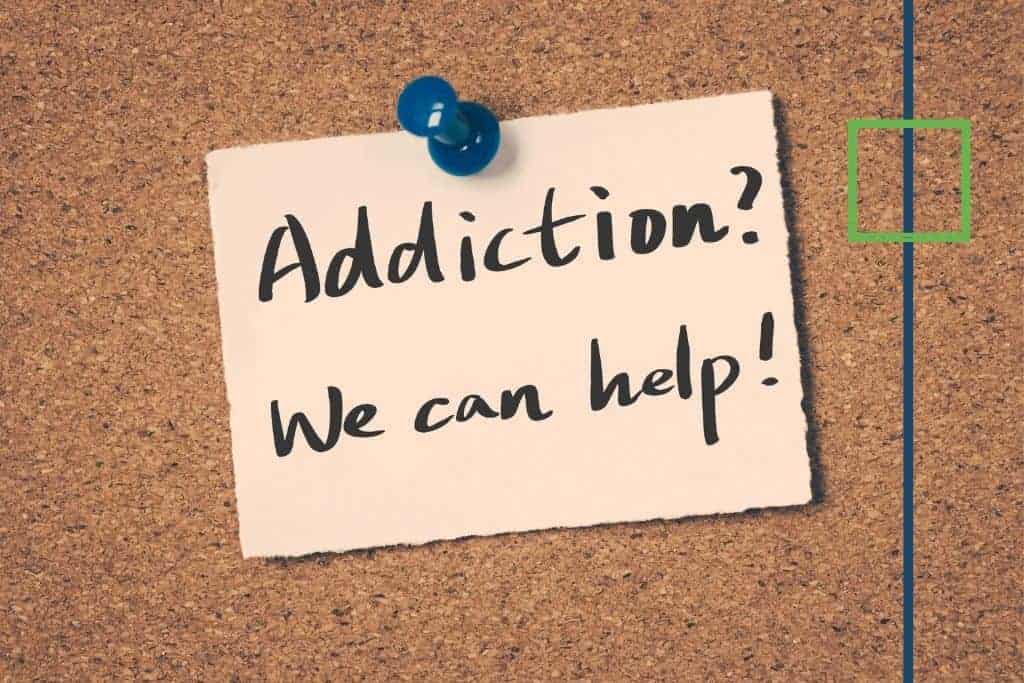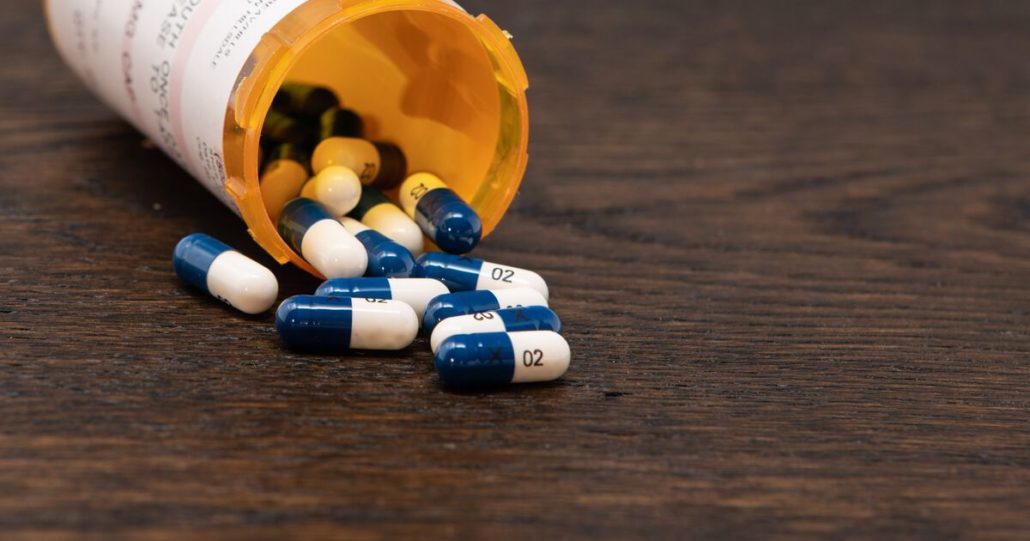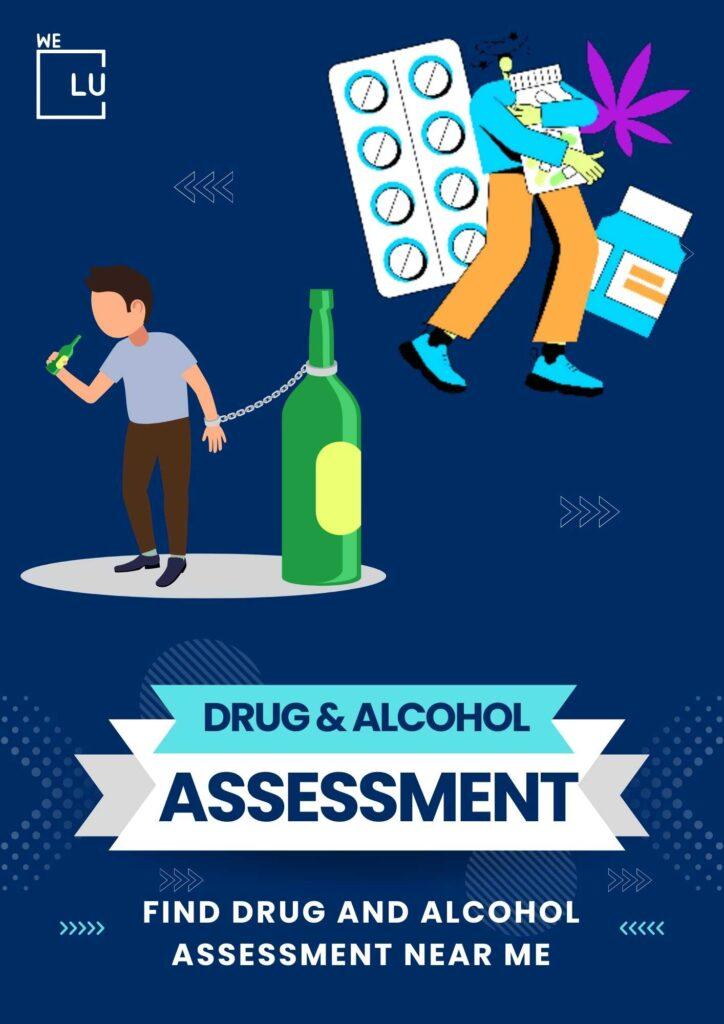Is Amitriptyline Addictive?
Amitriptyline is a drug frequently used to treat both depression and persistent pain. There are concerns regarding its addictive potential and adverse effects, even though it relieves many. The hazards, typical side effects, and available treatments for Amitriptyline addiction will be discussed. Knowledge of Amitriptyline’s subtleties is crucial for making educated judgments about its use, whether you’re a healthcare provider, a patient, or inquisitive.
Struggling with Substance Abuse? Join numerous individuals who have found support in We Level Up for drug addiction treatment. Contact us 24/7 for confidential assistance. Our addiction professionals are here to guide you on your recovery journey.
What is Amitriptyline?
Amitriptyline, a tricyclic antidepressant, is generally not considered addictive in the same way that substances like opioids or stimulants are. It doesn’t produce the same euphoric or reinforcing effects that lead to addiction.
Some individuals may develop a psychological dependence on Amitriptyline, especially if they believe it significantly improves their mood or relieves pain. Suddenly, discontinuing the medication without medical guidance can lead to withdrawal symptoms and a resurgence of the symptoms it was initially prescribed to treat.
Amitriptyline Addiction and Abuse Side Effects
Unlike other drugs or chemicals, such as opioids or stimulants, amitriptyline is not commonly connected with addiction or abuse. However, being conscious of the potential for Amitriptyline-related unpleasant reactions and side effects is crucial. Some of these are:
- Common Side Effects:
- Drowsiness.
- Dry mouth.
- Constipation.
- Blurred vision.
- Dizziness.
- Weight gain.
- Less Common Side Effects:
- Heart palpitations.
- Confusion.
- Hallucinations.
- Difficulty urinating.
- Increased sensitivity to sunlight.
- Skin rash.
- Serious Side Effects (Rare):
- Allergic reactions (e.g., rash, itching, swelling).
- Chest pain or palpitations.
- Shortness of breath.
- Unusual bleeding or bruising.
- Severe dizziness or fainting.
- Changes in sexual desire or ability.
Uncover addiction counseling that works. Discover professional help from We Level Up’s addiction and mental health therapists. Start getting support with a free call to our addiction hotline.

Skip To:
Learn More:
- Benadryl Addiction Signs & Symptoms Of Abuse. Is Benadryl Addictive?
- Is Suboxone Addictive? Symptoms, Signs & Withdrawal. How Is Suboxone Used to Treat Addiction?
- How Long to Rewire Brain from Addiction?
- Is Addiction a Disease? Learn the Disease Model of Addiction. Is Drug Addiction a Disease?
- How to Overcome Addiction Recovery Testimonies. Incredible Addiction Stories on Overcoming Addiction. Top 5 How to Overcome An Addiction Tips & Strategies.
How is Amitriptyline Addictive?
Amitriptyline, a tricyclic antidepressant, can be addictive or lead to misuse in some individuals, although its addiction potential is generally lower compared to certain other drugs. Here’s how amitriptyline can be addictive:
- Euphoria and Sedation: Amitriptyline can produce feelings of euphoria and sedation when taken in higher doses than prescribed. Some individuals may misuse the drug to experience these pleasurable effects.
- Tolerance Development: With prolonged use of amitriptyline, some individuals may develop tolerance, requiring higher doses to achieve the same effects. This can lead to escalating use and an increased risk of addiction.
- Psychological Dependence: Even with no solid physical dependence, some individuals may develop psychological dependence on amitriptyline. They may feel they cannot cope with their emotional or physical symptoms without the drug.
- Co-occurring Disorders: Individuals with a history of substance abuse or co-occurring mental health disorders, such as depression or anxiety, may be at a higher risk of developing amitriptyline addiction. They may use amitriptyline to self-medicate or augment other substances’ effects.
- Polydrug Use: Amitriptyline is sometimes misused with other substances, such as opioids or benzodiazepines. This polydrug use can increase the risk of addiction and overdose, as the combined effects of these substances can be potent.
To mitigate the risk of amitriptyline addiction, it’s crucial to use the medication only as directed by a healthcare professional, to be aware of its potential for misuse, and to seek help if you or someone you know is struggling with amitriptyline misuse or addiction. Healthcare providers should carefully assess a patient’s medical history, including any substance use or mental health disorders, before prescribing amitriptyline, and they should monitor patients closely during treatment.
Amitriptyline Addiction Facts
Overview
Amitriptyline is a tricyclic antidepressant medication commonly prescribed to treat depression, various chronic pain conditions, and certain mood disorders. It belongs to a class of drugs that work by affecting the balance of certain natural substances (neurotransmitters) in the brain.
Common Uses:
- Depression.
- Neuropathic pain.
- Migraine prevention.
- Fibromyalgia.
- Insomnia
How It Works:
Amitriptyline primarily works by increasing the levels of serotonin and norepinephrine in the brain, helping to improve mood and alleviate pain.
Potential Side Effects
Common side effects may include drowsiness, dry mouth, constipation, blurred vision, dizziness, and weight gain. Less common or severe side effects can occur and should be discussed with a healthcare provider.
Amitriptyline Addiction Potential
Amitriptyline is generally not considered addictive in the traditional sense, as it does not produce euphoric effects or cravings that lead to addiction. However, individuals may develop psychological dependence if they believe it improves their mood or relieves pain. It’s essential to use Amitriptyline as prescribed and under medical supervision.
Important Notes:
- Never discontinue Amitriptyline abruptly; doing so can lead to withdrawal symptoms.
- Follow your healthcare provider’s instructions for dosage and usage.
- Inform your healthcare provider of any other medications to avoid potential interactions.
- Discuss any concerns about side effects or medication use with your healthcare provider.

Get Your Life Back
Find Hope & Recovery. Get Safe Comfortable Detox, Addiction Rehab & Dual Diagnosis High-Quality Care.
Hotline(844) 597-1011Amitriptyline Addiction Statistics
Amitriptyline, a commonly prescribed medication for various medical conditions, can have addiction-related implications. Understanding the prevalence and impact of amitriptyline addiction is crucial for healthcare professionals, policymakers, and individuals taking this medication. Below are some key statistics that shed light on amitriptyline addiction:
- Prevalence of Usage: Amitriptyline is widely prescribed for depression, anxiety, and chronic pain. In the United States, over 14 million prescriptions for amitriptyline were filled in 2020.
- Misuse and Dependence: Approximately 1-2% of individuals prescribed amitriptyline may misuse or develop dependence on the drug, according to Substance Abuse and Mental Health Services Administration (SAMHSA) data.
- Age and Gender Trends: Research shows that amitriptyline misuse tends to be more common among younger adults, particularly those aged 18 to 25. Gender-wise, men are slightly more likely to misuse amitriptyline compared to women.
- Co-occurring Substance Abuse: Individuals with a history of substance abuse disorders are at a higher risk of developing amitriptyline addiction. Nearly 20% of those with substance use disorders also misuse amitriptyline.
25 mg daily
The suggested beginning dosage for the treatment of depression.
Source: FDA
12 Years Old
Due to a lack of data, this medication is not advised for children under 12.
Source: FDA
100 -200 mg a day
Hospitalized patients may necessitate an initial daily dosage of 100 mg, which can be progressively escalated to 200 mg daily if necessary.
Source: FDA
Amitriptyline Addiction Potential
Amitriptyline is a medication primarily prescribed to treat conditions like depression, anxiety disorders, and certain types of chronic pain. It belongs to a class of drugs known as tricyclic antidepressants (TCAs). While amitriptyline can be an effective treatment for these conditions when used as directed by a healthcare provider, it also has the potential for addiction or misuse, albeit lower than other substances.
Here’s an explanation of the Amitriptyline Addiction Potential:
1. Mechanism of Action: Amitriptyline affects the balance of certain chemicals (neurotransmitters) in the brain, such as serotonin and norepinephrine. This alteration can help alleviate symptoms of depression and pain. However, it can also produce euphoria and relaxation, making it potentially appealing for those seeking a “high.”
2. Tolerance and Dependence: Over time, some individuals may develop a tolerance to amitriptyline’s effects, requiring higher doses to achieve the same results. This can lead to an increased risk of dependence, where the person cannot function without the drug.
3. Psychological Dependence: While amitriptyline is not considered highly addictive compared to other drugs, some individuals may develop a psychological dependence on it. They may believe they need the medication to cope with their emotional or physical symptoms.
4. Misuse: Amitriptyline misuse can occur when individuals take more medication than prescribed, take it without a prescription, or use it for recreational purposes. Abuse can lead to dangerous side effects, including overdose.
5. Risk Factors: Certain factors can increase the likelihood of amitriptyline addiction potential, including a history of substance abuse, a co-occurring mental health disorder, or using amitriptyline in combination with other substances.
6. Withdrawal Symptoms: Abruptly stopping amitriptyline after regular use can lead to withdrawal symptoms, including mood swings, anxiety, sleep disturbances, and physical discomfort. These symptoms can contribute to continued use or relapse.
7. Medical Supervision: It’s crucial for individuals taking amitriptyline to follow their healthcare provider’s instructions carefully. Monitoring and adjusting the dosage under medical supervision can help minimize the risk of addiction and withdrawal symptoms.
8. Treatment: For individuals who develop amitriptyline addiction or dependence, treatment options are available. This may involve a combination of medical detoxification, counseling, and behavioral therapy to address addiction’s physical and psychological aspects.
In summary, while amitriptyline has an addiction potential, it is generally considered to have a lower risk than other substances. However, anyone taking amitriptyline should do so under medical supervision, and healthcare providers should be vigilant in assessing the patient’s risk factors for addiction and closely monitoring their progress during treatment. If you or someone you know is struggling with amitriptyline misuse or addiction, seeking professional help is essential for a safe and effective recovery.
Amitriptyline Addiction Withdrawal Symptoms
Amitriptyline is a pharmaceutical agent employed in treating depressive disorders, anxiety disorders, and a range of pain syndromes. Although Amitriptyline is not commonly linked to addiction like certain other narcotics, persons who engage in long-term usage of this prescription may have withdrawal symptoms if they suddenly discontinue its use or dramatically decrease their dosage.

Amitriptyline Withdrawal Symptoms:
- Nausea and Vomiting: Some people may experience digestive symptoms like nausea and vomiting when discontinuing Amitriptyline.
- Insomnia: Difficulty sleeping or worsening of pre-existing sleep disturbances can occur during withdrawal.
- Irritability: Mood changes, including irritability and anxiety, are common during withdrawal.
- Headaches: Headaches and increased sensitivity to light may be experienced.
- Flu-Like Symptoms: Some individuals may have flu-like symptoms, such as muscle aches and chills.
- Dizziness: A sense of dizziness or vertigo is possible during withdrawal.
Get Help. Get Better. Get Your Life Back.
Searching for Accredited Drug and Alcohol Rehab Centers Near You?
Even if you have failed previously and relapsed, or are in the middle of a difficult crisis, we stand ready to support you. Our trusted behavioral health specialists will not give up on you. When you feel ready or just want someone to speak to about therapy alternatives to change your life call us. Even if we cannot assist you, we will lead you to wherever you can get support. There is no obligation. Call our hotline today.
(844) 597-1011Amitriptyline High
Amitriptyline is a tricyclic antidepressant primarily prescribed to treat depression, chronic pain, and mood disorders. It is not intended to be used recreationally or to produce a “high.” Using Amitriptyline in ways other than prescribed by a healthcare professional can be extremely dangerous and may lead to severe side effects and health risks, including overdose.
Attempting to misuse Amitriptyline by taking higher doses than prescribed or using it for recreational purposes is unsafe and illegal. It can result in a range of adverse effects, including:

- Severe Sedation: Amitriptyline can cause significant drowsiness even at therapeutic doses. Taking high doses can lead to extreme sedation, impaired coordination, and a loss of consciousness.
- Cardiac Effects: High doses of Amitriptyline can affect the heart’s electrical activity, potentially leading to life-threatening cardiac arrhythmias.
- Seizures: In some cases, overdose or misuse of Amitriptyline may trigger seizures.
- Anticholinergic Effects: Overdose can intensify anticholinergic side effects like dry mouth, blurred vision, constipation, and urinary retention.
- Delirium: High doses can lead to delirium, confusion, and altered perception.
- Coma and Death: In severe cases, Amitriptyline overdose can result in a coma or be fatal.
First-class Facilities & Amenities
World-class High-Quality Addiction & Mental Health Rehabilitation Treatment
Rehab Centers TourRenowned Addiction Centers. Serene Private Facilities. Inpatient rehab programs vary.
Addiction Helpline(844) 597-1011Proven recovery success experience, backed by a Team w/ History of:
15+
Years of Unified Experience
100s
5-Star Reviews Across Our Centers
10K
Recovery Success Stories Across Our Network
- Low Patient to Therapist Ratio
- Onsite Medical Detox Center
- Comprehensive Dual-Diagnosis Treatment
- Complimentary Family & Alumni Programs
- Coaching, Recovery & Personal Development Events

Amitriptyline Addiction Treatment at We Level Up
Ambien addiction can be a complex and challenging journey, and we’re here to provide comprehensive support.
Our Services Include:
- Dual Diagnosis Treatment: Addressing co-occurring mental health issues alongside addiction, our integrated care approach promotes lasting recovery.
- Medical Detox: Ensuring a safe and comfortable Ambien withdrawal under expert supervision.
- Individualized Therapy: Exploring addiction’s root causes and developing personalized recovery strategies through one-on-one counseling.
- Group Therapy: Building community and sharing experiences in supportive group sessions.
- Holistic Approaches: Incorporating yoga, meditation, and art therapy to address physical, emotional, and spiritual aspects of recovery.
- Relapse Prevention: Equipping individuals with tools to identify triggers and maintain sobriety.
Our commitment at We Level Up is helping individuals overcome Ambien addiction for lasting recovery. Our evidence-based treatments, compassionate staff, and personalized care plans support each person’s unique journey to sobriety. If you or someone you know is struggling with Ambien addiction, reach out today. We provide guidance and support, promoting mental health and well-being.
We Level Up Treatment Center is committed to guiding you toward lasting recovery from Ambien Addiction and co-occurring conditions. Our multidisciplinary team is here to provide unwavering support, guidance, and personalized care every step of the way. Let’s embark on this transformative journey together.
World-class, Accredited, 5-Star Reviewed, Effective Addiction & Mental Health Programs. Complete Behavioral Health Inpatient Rehab, Detox plus Co-occuring Disorders Therapy.
CALL(844) 597-1011End the Addiction Pain. End the Emotional Rollercoaster. Get Your Life Back. Start Drug, Alcohol & Dual Diagnosis Mental Health Treatment Now. Get Free No-obligation Guidance by Substance Abuse Specialists Who Understand Addiction & Mental Health Recovery & Know How to Help.
Popular FAQs about Is Amitriptyline Addictive?
-
Can You Become Addicted to Amitriptyline?
Yes, it is possible to become addicted to amitriptyline, although its addiction potential is generally considered lower compared to some other substances.
Experience Transformative Recovery at the We Level Up Treatment Center.
See our authentic success stories. Get inspired. Get the help you deserve.
Experience Transformative Recovery at We Level Up Treatment Centers.
See our authentic success stories. Get inspired. Get the help you deserve.
Start a New Life
Begin with a free call to an addiction & behavioral health treatment advisor. Learn more about our dual-diagnosis programs. The We Level Up Treatment Center Network delivers recovery programs that vary by each treatment facility. Call to learn more.
- Personalized Care
- Caring Accountable Staff
- World-class Amenities
- Licensed & Accredited
- Renowned w/ 100s 5-Star Reviews
We’ll Call You
Search Is Amitriptyline Addictive We Level Up Alcohol Poisoning Detox, Mental Health Topics & Resources
Sources
[1] Newman RK, Stobart Gallagher MA, Gomez AE. Alcohol Withdrawal. [Updated 2022 Aug 29]. In: StatPearls [Internet]. Treasure Island (FL): StatPearls Publishing; 2023 Jan-. Available from: https://www.ncbi.nlm.nih.gov/books/NBK441882/
[2] Alcohol Facts and Statistics – National Institute on Alcohol Abuse and Alcoholism (NIAAA)
[3] Nehring SM, Freeman AM. Alcohol Use Disorder. [Updated 2022 Jul 31]. In: StatPearls [Internet]. Treasure Island (FL): StatPearls Publishing; 2023 Jan-. Available from: https://www.ncbi.nlm.nih.gov/books/NBK436003/
[4] Alozai Uu, Sharma S. Drug and Alcohol Use. [Updated 2022 Jun 21]. In: StatPearls [Internet]. Treasure Island (FL): StatPearls Publishing; 2023 Jan-. Available from: https://www.ncbi.nlm.nih.gov/books/NBK513263/
[5] Alcohol use disorder – Available from: https://medlineplus.gov/download/genetics/condition/alcohol-use-disorder.pdf
[6] Huebner RB, Kantor LW. Advances in alcoholism treatment. Alcohol Res Health. 2011;33(4):295-9. PMID: 23580014; PMCID: PMC3860532.
[7] Center for Substance Abuse Treatment. A Guide to Substance Abuse Services for Primary Care Clinicians. Rockville (MD): Substance Abuse and Mental Health Services Administration (US); 1997. (Treatment Improvement Protocol (TIP) Series, No. 24.) Chapter 5—Specialized Substance Abuse Treatment Programs. Available from: https://www.ncbi.nlm.nih.gov/books/NBK64815/
[8] LaHood AJ, Kok SJ. Ethanol Toxicity. [Updated 2023 Mar 13]. In: StatPearls [Internet]. Treasure Island (FL): StatPearls Publishing; 2023 Jan-. Available from: https://www.ncbi.nlm.nih.gov/books/NBK557381/
[9] Alcohol’s Effects on Health – National Institute on Alcohol Abuse and Alcoholism (NIAAA)
[10] Alcohol’s Effect on Health: NIAAA brochures and fact sheets – National Institute on Alcohol Abuse and Alcoholism (NIAAA)





